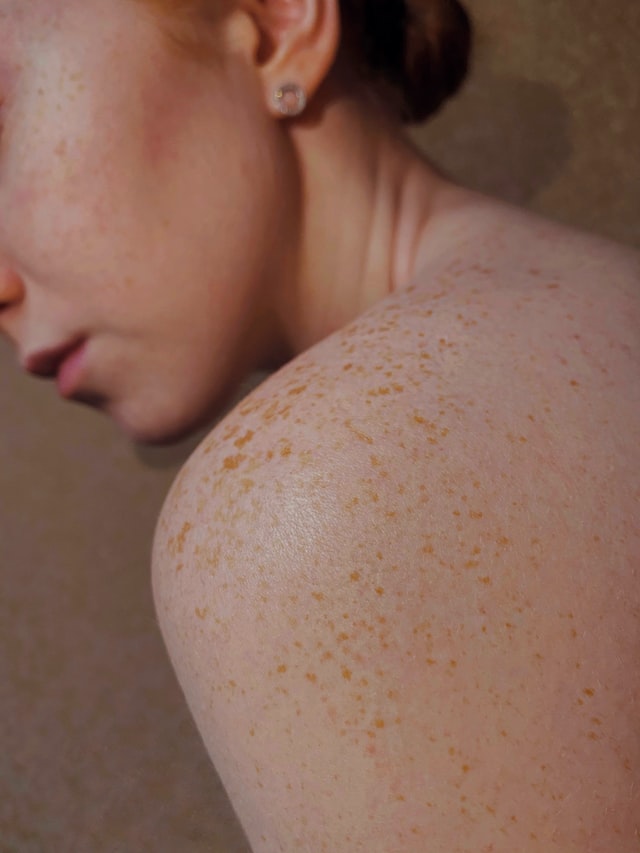Wednesday 29/6/2022
PHOTO: Valeria Smirnova
Text: Alejandra Misiolek
Have you ever heard about atopic dermatitis or eczema?
This post is dedicated to a patient with atopic skin who is working on this skin condition in therapy and who was not even aware it was so important until recently. Thanks to facing together the shame of this condition she opened my eyes to understanding the importance of this disease for self-esteem.
Atopic dermatitis (AD) is a chronic relapsing inflammatory skin condition. Its main features are eczematous skin lesions and severe pruritus or itching. It has a significant psychosocial and quality of life impact as the condition causes physical discomfort, emotional distress, embarrassment, social stigma and daily activity limitation.
Allergens, skin irritants, systemic or local infections, environmental pollutants and hormonal changes have a role in the pathophysiology of AD. A further important trigger factor for both intrinsic and extrinsic AD is emotional stress. Therefore, it can easily become a vicious cycle where skin lesions cause stress because of the psychosocial stigma and stress causes even more dermatitis and itching.
The bad news is that there is no treatment to cure the disease, there is only medication that can treat the symptoms and the medication is not ideal either as it has important side effects or is very expensive.
Since this dermatological disorder affects significantly patients’ mental health and psychological state in complex ways, there are numerous studies that tried to understand the entire scope of this burden.
In a study carried out in Italy in 2021, in which a total of 352 adult patients participated, it has been found that the prevalence of alexithymic personality features* was 56.3% in patients with AD versus 21.3% in healthy controls and depression appeared in a significantly higher number of patients with AD than in the control group 56.9% vs. 15.7%.
In a different study, conducted in Netherlands in 2005, the researchers concluded that higher levels of fatigue, perceived helplessness and less social support best predicted psychological distress in patients with this skin disease.
Atopic skin is a frequent condition, it appears in approximately 15% to 20% of children and 1% to 3% of adults worldwide. However, it is not socially well recognized, as for example vitiligo, promoted by the models in the Desigual campaign. Patients with atopic skin condition very frequently are not even aware of how important their skin condition has been in their life and development of their self-esteem.
When you have to carry with you the impact of a condition that has always been with you, that is not socially well recognized and misunderstood very frequently as lack of hygiene, that has no cure and whose relapses are unpredictable, no wonder it affects significantly your daily functioning and affects your identity. Moreover, this condition is all over your skin, visible to others before you can even voice who you are.
The objective of this post is to help readers who have this condition give importance to their psychological symptoms (you are not a problem!) and those who don´t, reflect on it when they see someone with an eczematous skin full of scratches (Don´t jump to hurtful conclusions!).
*Alexithymic personality features are characterized by the disconnection from emotions, emotional states and an inability to name the emotions, which appears in people who underwent sever traumas or who use this defense mechanism to not feel pain they can´t process in a healthy way.
Sources:
